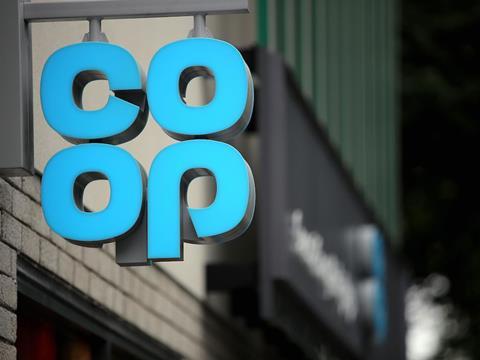
Co-op has today announced the launch of an ambitious in-store recycling scheme for plastic bags and product wrapping.
The convenience retailer says that the rollout of this scheme will help it to become the first UK supermarket to have fully recyclable food packaging by the end of this month (July) and, help tackle the confusing postcode lottery of kerbside collections.
Recycling units for soft plastics will launch in 1,500 Co-op stores this month (July) and 2,300 stores by November. These will aim to create a disposal route for materials that are unlikely to be collected by UK councils, including crisp packets, bread bags, single-use carrier bags and bags-for-life, lids from ready meals and yogurt pots, biscuit wrappers, and pet-food pouches.
Through these in-store units – which also accept packaging for food products purchased from other retailers – the retailer estimates that 300 tonnes of plastic bags and food wrapping could be collected per year once the bins are fully in place.
The national roll-out of the scheme follows a successful 50 store film collection trial last year which found that 86% of shoppers were likely to use the service. It is also designed with the aim of reassuring concerned communities that the plastics collected will be recycled in the UK.
The recyclable material is turned, by Jayplas, into post-consumer plastic granules which are then made into secondary products – including bin liners; rigid products such as buckets, and material for the construction industry - rather than filling land-fill sites, getting incinerated, or being shipped overseas.
In some areas of the UK, less than 30% of waste from households is currently recycled, with systems that can vary from council to council adding to the confusion. Estimates from WRAP suggest that just 6% of plastic bags and wrapping from UK households are recycled each year, while (by weight) it makes up around a fifth of all plastic packaging.
Jo Whitfield, Co-op Food CEO, said: “As we face an environmental crisis, we know from our feedback that there is a universal appetite for change. This is why we are making it easier for thousands of households to recycle all of their plastic food packaging.
“This will not only prevent unnecessary waste but also reduce plastic pollution. By offering a simple and convenient solution to an everyday issue, we believe we can help communities to make small changes, that together will add up to a big difference for our environment.”
In May, Co-op unveiled its new ten-point climate plan which sets out a blueprint for the retailer to achieve net-zero for its direct and indirect carbon emissions by 2040, including offsetting the greenhouse gas emissions of Co-op products and services.
















